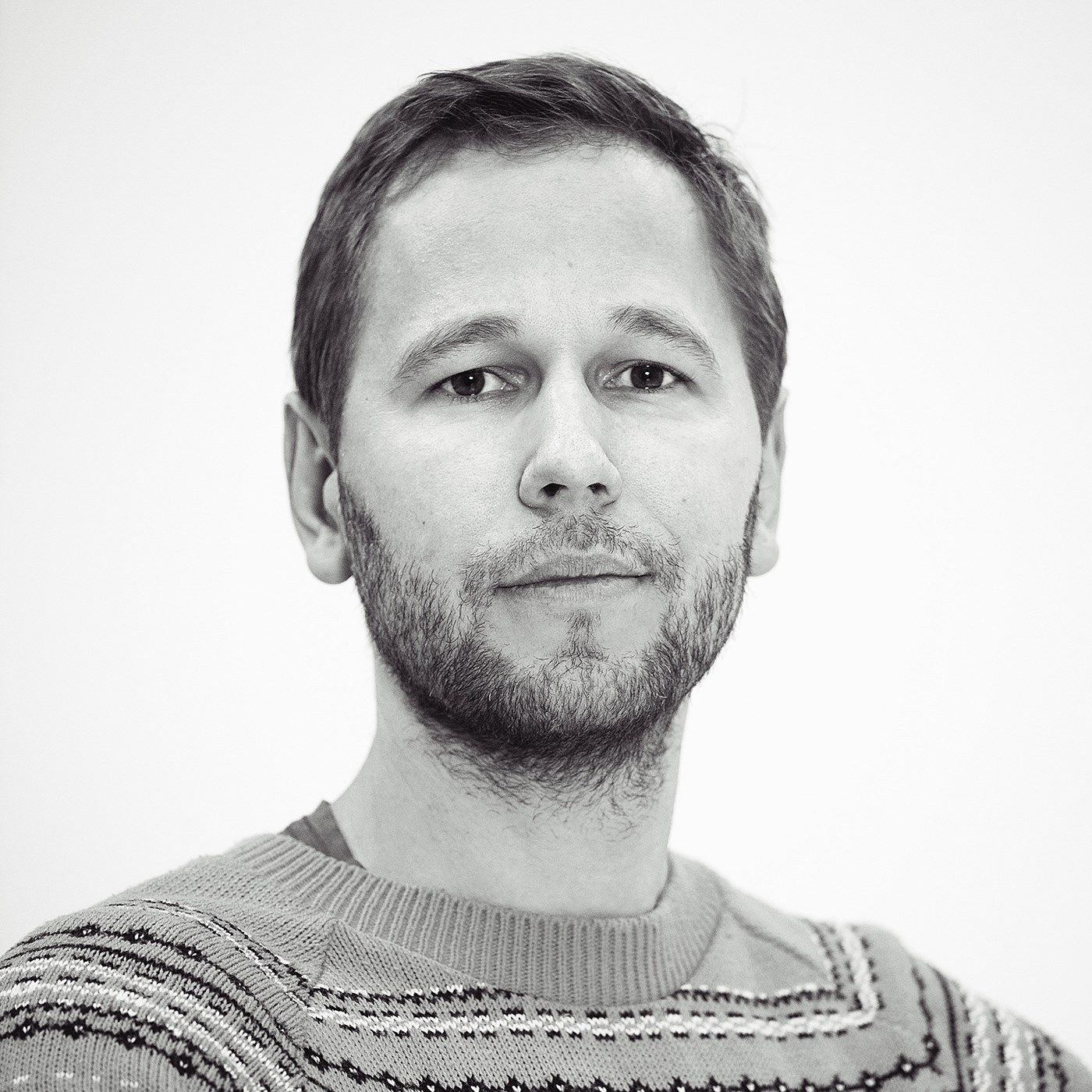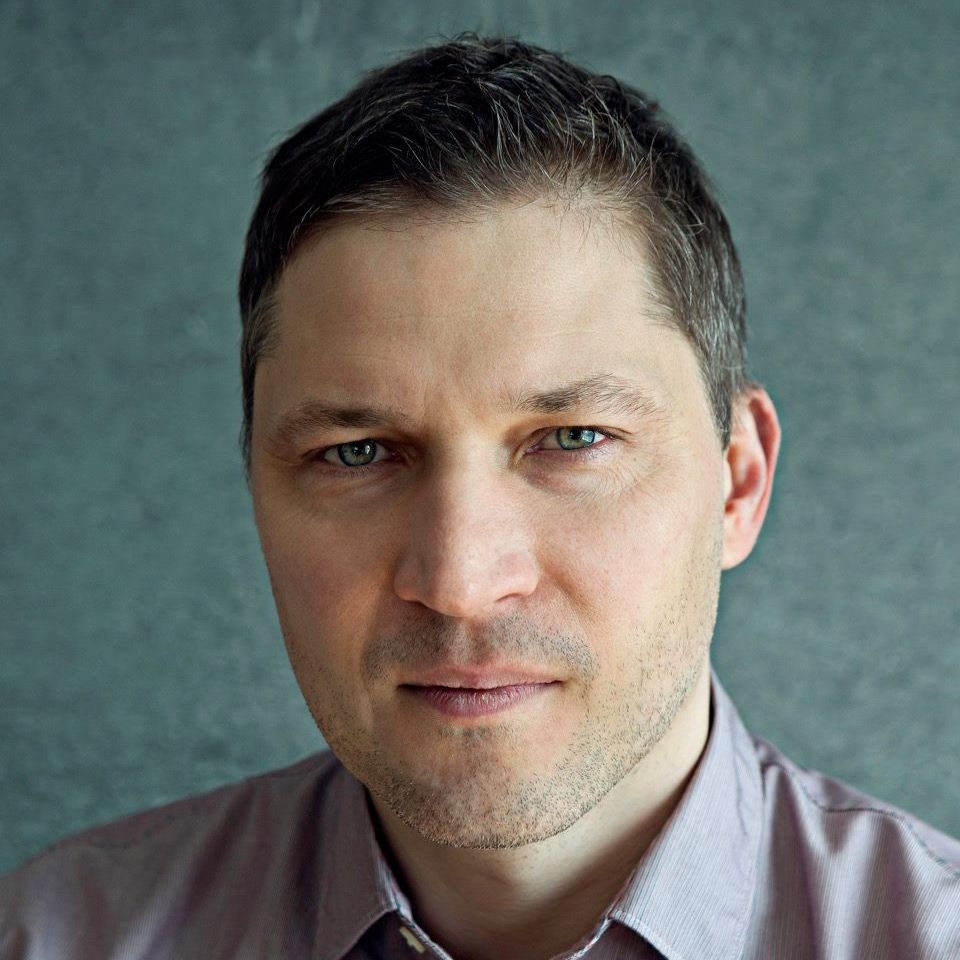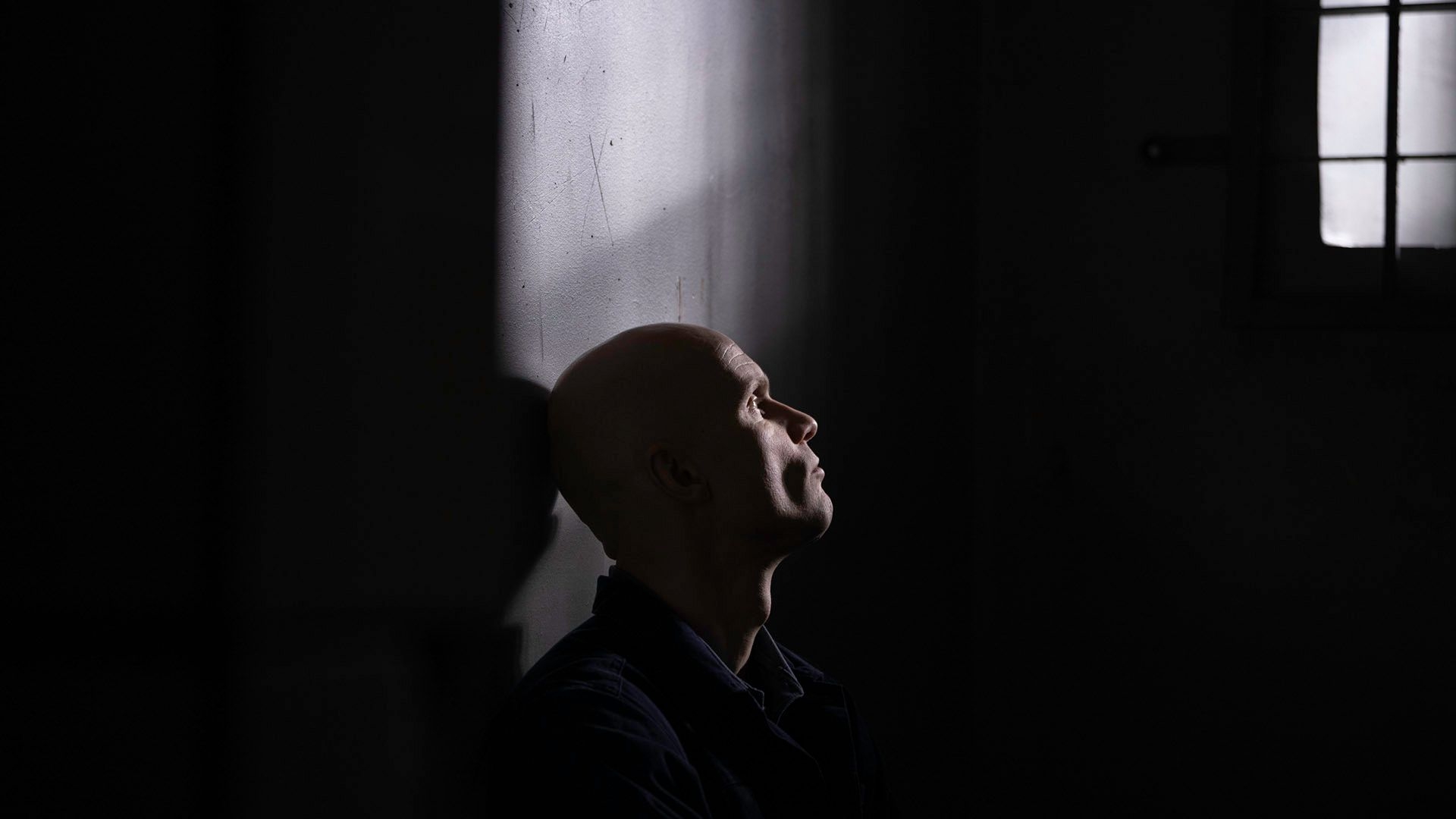Baltic Event Works in Progress
Something Real
A lonely man’s search for intimacy traps him in a deadly game of blackmail and survival.
Trapped in addiction and loneliness, Leo's search for intimacy leads him into a brutal blackmail scheme. As he fights to reclaim his life, a dangerous stand-off unfolds between guilt, control, and the desperate need for connection.
Main country of production
Estonia
Director's note
INTRODUCTION
I first picked up Martin Algus's novel 'Something Real' in 2019, the year it won the annual literature award from the Estonian Cultural Endowment. The story immediately resonated with my own worldview, touching on deeply relevant issues that we all face today.
Loneliness, addiction, ruthless exploitation, and isolation – all of these are problems that seem to find quick fixes in the shiny promises of material well-being. These tempt us to take risks, to leap into unfamiliar worlds for which we are unprepared and which feel unnatural to our very biology. The result is often chaos that devastates both ourselves and those around us.
To me,'Something Real' is first and foremost a thriller – a story that looks unflinchingly at the mechanisms of the modern world and the illusions that come with them. Through the fateful collision of two seemingly very different men who both long to experience something authentic, the film offers an ironic self-reflection of our society. Neither of them, however, has the faintest idea of just how painful that dream will turn out to be.
AUDIOVISUAL LANGUAGE
When we began breaking down the story with Martin Algus – the original author and screenwriter – it quickly became clear to me that the film needed to follow the escalating structure of a thriller. Among contemporary filmmakers, it shares the most DNA with the later work of the Safdie brothers ('Good Time,' 'Uncut Gems') and early Scorsese ('Taxi Driver,' 'Mean Streets') – especially in terms of atmosphere, tension, and structure.
We extracted the most essential events and storylines from the novel, discarding any excess or repetition that worked only in a literary context. For the sake of the film, we also had to invent quite a bit – to ensure that the adaptation would come alive in its new format.
The result is a highly dynamic parallel narrative, visually gritty and at times graphic. The tension builds through tight handheld close-ups and medium shots, rhythmically driven by a bold, leftfield-inspired musical score. The colour palette nods to the look of Kodak Vision 50D – injecting a dreamlike texture into an otherwise harsh reality.
To further shift the sense of time and place, we also rely on colour grading and occasional musical exaggeration. On one hand, the story is modern, featuring present-day people and situations. On the other, it's intentionally difficult to pinpoint the exact time or place. The film should not feel like bleak Nordic realism. Instead, it should reflect a kind of West Coast coolness and style, distinctly different in tone – with bold echoes of the American school of cinema.
This distancing effect allows viewers to step back from everyday anxiety and instead focus on Leo's inner journey — his helplessness in the face of Karl's blackmail scheme, which pushes the boundaries of human endurance and eventually forces him to fight back. The film also flirts shamelessly with entertainment value – not superficially, but purposefully. I believe it's a film that can resonate with a broader audience.
Beyond creating mood and tension, the music also plays a crucial role in distorting narrative normalcy. At times, it must feel sudden, jarring, even uncomfortable – asserting itself to underline the absurdity of certain situations. It also helps externalise the characters' inner lives for the audience.
CHARACTERS
LEO is a modern-day European man with a sad-knight complex – passive, conflict-averse, and emotionally detached at home and at work. Despite having a wife and children, he has fallen asleep inside himself. This disconnection drives him into dependency mechanisms that only worsen as events escalate. He drifts through flashing screens like a sleepwalker, seeking comfort or release.
That's why his transformation later stands out so clearly. Confidence and satisfaction are foreign to him at first, but we witness his growth and root for him – perhaps with a smile, but always with sympathy.
Even in the climactic act, where Leo must physically act and overcome something, we avoid excessive testosterone. His leap into the unknown is clumsy and human – filled with effort but never heroics.
Through Leo's character, I want to address one of today's most pressing issues – loneliness. I don't offer a solution, but I aim to highlight the emotional paralysis it causes and how it shapes both decisions and indecision.
KARL should be Leo's opposite – methodical, forceful, and driven. His worldview was shaped not by prosperity but by survival. Raised in an orphanage and hardened by prison, Karl sees himself as an entrepreneur, not a criminal. He believes his plan is justified — he cleanses society of filth, provides for his family, keeps promises, respects his workers. What's the problem?
Karl's greatest flaw is his lack of empathy. He inflicts suffering for 'good reasons' without truly understanding the consequences.
I find the timing of both male protagonists' narrative arcs particularly compelling. Just as Karl's life seems to be improving, Leo's begins to unravel – until both hit their respective breaking points. When Leo loses everything and has nothing left to protect, he chooses to survive and fight. Meanwhile, Karl's overconfidence and greed spark a downward spiral. From that moment on, their fortunes reverse – Karl begins to fall while Leo slowly rises.
LOCATIONS
Since the film deliberately contrasts two versions of Estonia – old and new – we reflect that in our choice of locations. The script contains strong allegories for 'upper town' and 'lower town.'
The upper town will resemble a modern city centre: glass façades, polished storefronts, high-rises, and concrete parking lots. Visually, we aim to maintain emptiness and bleakness that mirror Leo's inner state. His movement through this sterile world should feel distant and emotionally numb.
Lower-town life unfolds in crumbling streets and buildings, where people are consumed by their own problems. No one intervenes. This detachment is especially important during the film's darker moments – a place where someone could disappear without anyone noticing.
Producer's note
'Something Real' is an adaptation of the novel of the same name and marks the first collaboration between screenwriter Martin Algus – who is also the author of the original work – and director Evar Anvelt. At Nafta Films, we have previously worked with both talents: with Evar, we produced the award-winning short film 'The Good Shepherd.' Martin, in turn, was the screenwriter of one of our more recent feature films, 'Totally Boss', which premiered in cinemas in 2023. Taking all of this into account, 'Something Real' is a natural continuation of our creative partnership with both authors.
The novel 'Something Real', on which the film is based, was met with strong domestic success – and rightfully so. The story captures the spirit of our contemporary era with striking accuracy, and the book was released at a time when child abuse was a hot-button issue in the Estonian public sphere. Like many other countries, Estonia has recently been forced to confront the shocking reality that individuals seeking to exploit vulnerable children can be found everywhere – often in positions of power.
Leo, the film's protagonist, is not one of these abusers. In fact, he becomes a victim of his peers, making his story a unique opportunity to explore the psychological and emotional triggers that can lead people to make damaging choices. This, in turn, allows us to delve into a dark – and perhaps even perverse – corner of our society. The film offers a clear yet grim and monotonous portrait of modern life, one that we hope encourages viewers to look at the world around them differently, without filters.
'Something Real' also touches on other pressing issues such as loneliness and the human drive for escapism in a consumer-driven world. The themes and problems portrayed in the film are not unique to Estonia – they reflect global challenges. Fortunately, public awareness around these issues has grown significantly in recent years, which is why we believe this story holds strong relevance beyond our local context.
The development of 'Something Real' took place over the course of nearly three years at Nafta Films. During that time, we received both script, development, and production support from the Estonian Film Institute and the Estonian Cultural Endowment. The project also benefited from development funding via our successful Creative Europe MEDIA Slate application.
The majority of the principal photography for the feature film 'Something Real' took place in Vilnius, the capital of Lithuania. In total, there were 25 shooting days in Lithuania, one day in Estonia, and two 'pick-up' days during which a minimal crew filmed cover shots. Filming began on 4 March in Vilnius and concluded on 14 April in Tallinn.
Subjects:
technology, social media, belonging, porn, loneliness, harrassment, men, abuse, child parent relationships, individual vs society, familial relationships, addictions, violence

Evar Anvelt has worked in the film industry for more than a decade, primarily in post-production as one of Estonia's most sought-after colorists. He has served as a colorist on more than 20 films — both shorts and features, fiction and documentary. His path as a director began with commercials for both the Estonian and international markets. In 2018, he also directed the short film "The Good Shepherd". Evar is currently in post-production with his first feature-length directorial debut, "Something Real".

Andreas Kask joined Nafta Films in 2014 and has since worked as a Producer, Associate Producer and Co-Producer on several productions. For the past four years he has been the Head of Development in the company's film department, overseeing the creative process of all of Nafta's feature films, short films and co-productions.

Esko Rips is an Estonian producer and CEO of Nafta Films, known for building bridges between the Baltic region and the wider international film industry. Since co-founding the company in 2009, he has led its growth into one of the Baltics' most successful and export-driven production companies, with offices in Tallinn, Riga, and Vilnius. Esko has produced or co-produced over 30 titles across Europe, including the Baltic box office successes "Melchior the Apothecary" trilogy, the Cold War spy thriller "Dawn of War", and the historical epic "The Southern Chronicles", the most-watched film of all time in Lithuania. He also worked on acclaimed Danish series such as "Bullshit" and "Oxen" I & II, and is currently developing "The Inquest of Pilot Pirx", a high-profile English-language sci-fi drama directed by Oliver Hirschbiegel. A member of the European Producers Club and the European Film Academy, and an alumnus of ACE Producers, EAVE, and other leading industry programmes, Esko brings deep expertise in development, financing, and cross-border collaboration.

Martin Algus is an Estonian actor, writer, screenwriter, and playwright. He is most known for writing feature films and TV series. His filmography includes some of Estonia's most-watched features and TV series, including The Dissidents done in collaboration with director Jaak Kilmi and Taska Film.

Nafta Films was founded in 2009 and has quickly become one of the largest production companies in Estonia, producing audiovisual content of all forms: films, TV productions, and commercials. Nafta Films is the only production company that has offices in all three Baltic countries as well as access to a network of hundreds of creative professionals in Northern Europe and the Baltic states who can be employed on a project basis. Nafta's filmography consists of more than 30 feature films and shorts, including in-house movies, co-productions and production services. Commercially, Nafta Films' biggest clients include Volkswagen, Lidl, Ferrero, Mercedes, Samsung, HP, Renault, Porsche, and many more.

